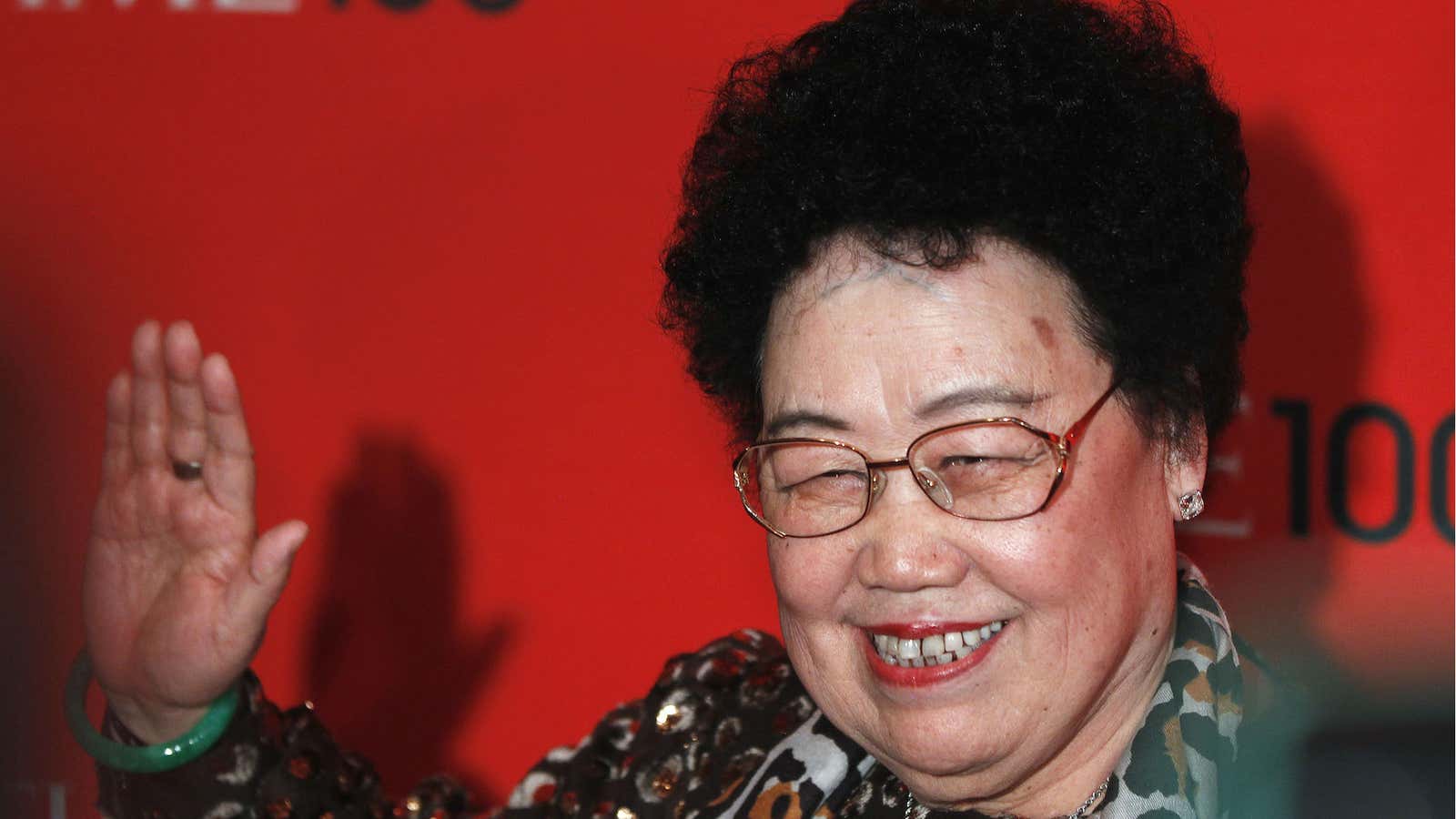Half of the world’s female billionaires who made their own fortunes are Chinese. That’s according to a global ranking of women executives released today (Sept. 17). In the Hurun Report’s list of rich and powerful women (link in Chinese) of the year, 14 of the 28 female entrepreneurs with assets of more than $1 billion (as of Aug. 15) were from mainland China.
That’s notable given China’s long history of gender discrimination. At the top of the list is Chen Lihua, 72, of the real estate firm Fu Wah, whose fortune of 37 billion renminbi (about $6 billion) outpaces that of the recently deceased Rosalia Mera, head of Inditex who was regarded as the richest self-made female entrepreneur in the world when she died. According to the Hurun list, Wu Yajun, 49, a former journalist and founder of the real estate firm Longfor; Zhang Yin, 56, who buys and ships scrap paper from the US to China; and Zhang Xin, 48 of real estate developer Soho China, are all wealthier than Oprah Winfrey.
Their rags-to-riches stories—Zhang once worked in a garment factory and, while studying in the UK, in a fish-and-chip shop, while Chen got her start running a furniture-repair operation—are particularly compelling in a country where many millions have come out of poverty in recent decades and where the one-child policy that began in the 80s has heightened a preference for male children and led to long-standing neglect of girls’ education and career prospects.
All of that seems to be changing. Today, most Chinese women work—as many as 70% by some estimates. A paradoxical side-effect of the one-child policy is that although parents prefer boys, parents with a daughter who is their only child have been more likely to send her to school than if she had been one of several. As of 2011, Chinese women accounted for 20% (pdf, p. 21) of all entrepreneurs in the country, according to government statistics.
Still, it’s hard for Chinese women to start their own businesses. Researchers Tonia Warnecke, Lucas Hernandez, and Nicholas Nunn from Rollins College argued in a paper last year (pdf) that many Chinese women start businesses because they can’t find employment elsewhere—and often in the lower-paying informal economy. Women are still shut out of male-dominated networks in a business culture where guanxi, or personal connections, matter greatly. On top of that, they’re under pressure to marry and settle down before the age of 30, and have more trouble than men getting financing for new businesses.
